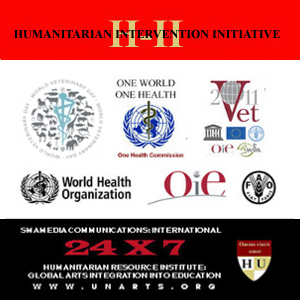7 September 2013
Contact:
Stephen M. Apatow
Founder,
Director of Research & Development
Humanitarian
Resource Institute (UN:NGO:DESA)
Humanitarian University
Consortium Graduate Studies
Center
for Medicine, Veterinary Medicine & Law
Phone:
203-668-0282
Email:
s.m.apatow@humanitarian.net
Internet:
www.humanitarian.net
H-II
OPSEC
Url:
www.H-II.org
Pathobiologics
International
Internet:
www.pathobiologics.org

Biosecurity Prioritization -
High Consequence Strains - BSL-4 labs
Is a
pandemic from a lab release from mtGOF flu research a
possibility? The simple likelihood-weighted-consequence analysis (LWC
analysis) presented here can provide insight into the answer for this
question. Among the consequences of a release
are fatalities, severe illness, and economic loss. Each lab working
with mtGOF flu strains carries with it the burden of these
consequences. To simplify the analysis, fatalities from a pandemic are
considered to be the only consequence, here called the “fatality
burden.” The fatality burden has three components: the probability of a
mtGOF flu strain release from a lab, the probability that release leads
to a pandemic, and the number of pandemic fatalities. -- The
Human Fatality Burden of Gain of Function Flu Research: A Risk Assessment:
Lynn C. Klotz, Senior Science Fellow, Center for Arms Control and Non
Proliferation.
Special
thanks to Dr. JackWoodall, for
passing this on for a targeted background discussion on the subject
matter.
Related:
HRI:H-II
OPSEC Ground Zero
From
Y2K to Today: The HRI International Disaster Information Network
provides leadership for global infrastructure analysis, contingency
planning and response for complex emergencies. --
HRI:H-II
OPSEC Ground Zero.
The
Humanitarian University Consortium (ProMED:ISID:
Announcements
2003 (08): Humanitarian Univ. Consort.) was founded to
support the development of initiatives associated with economic,
social, cultural and humanitarian issues worldwide. Our mission
is to serve as (1) an
international community of scholars, (2) a bridge between Humanitarian
Resource
Institute and the international academic community, (3) a think tank in
support of the United Nations programs and (4) the promotion of higher
learning
through both traditional and distance education.
In
the
publication "Biological
Threats and Terrorism, Assessing the Science and Response Capabilities:
Workshop Summary," the National Academy of Sciences has recognized
Humanitarian Resource Institute (HRI) as one of nine leading
educational and research institutions. These include:
- Center
for Nonproliferation Studies.
- Columbia
University: Center for Public Health Preparedness.
- Harvard
University John F. Kennedy School of Government: Belfer Center for
Science and International Affairs.
- Humanitarian
Resource Institute.
- Johns
Hopkins University: Center for Civilian Biodefense Studies.
- Massachusetts
Institute of Technology: Center for International Studies.
- National
Academy of Sciences.
- University
of Maryland: Center for International and Security Studies at Maryland.
- University
of Minnesota: Center for Infectious Disease Research and Policy.
Reference: Forum on
Emerging Infections, Board on Global Health. "Front Matter."
Biological Threats and Terrorism: Assessing the Science and Response
Capabilities: Workshop Summary. Washington, DC: The
National
Academies Press, 2002.
###
|